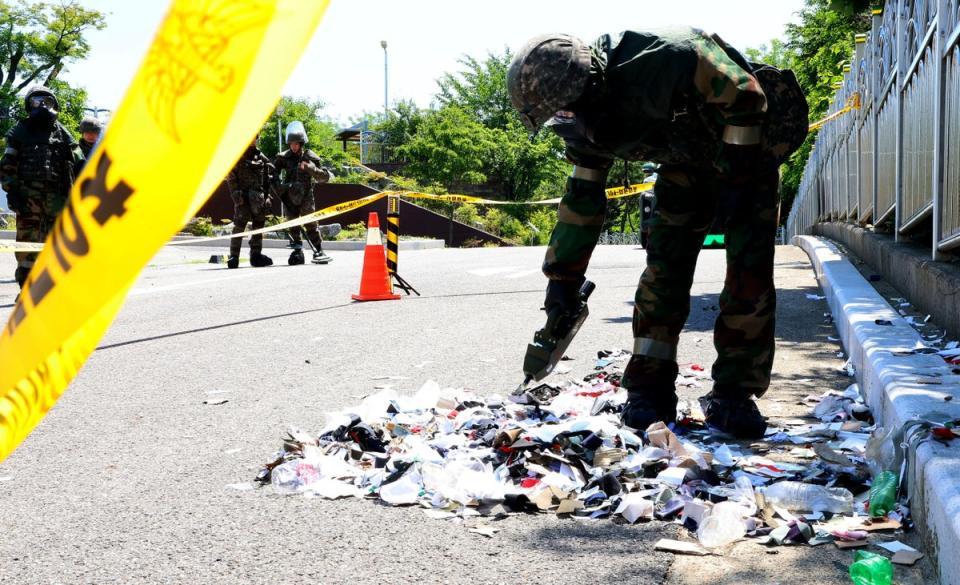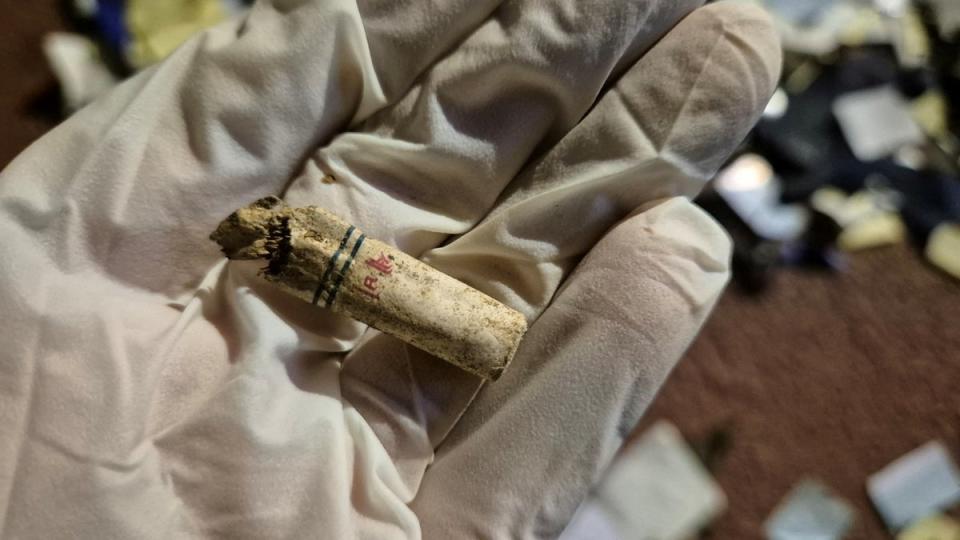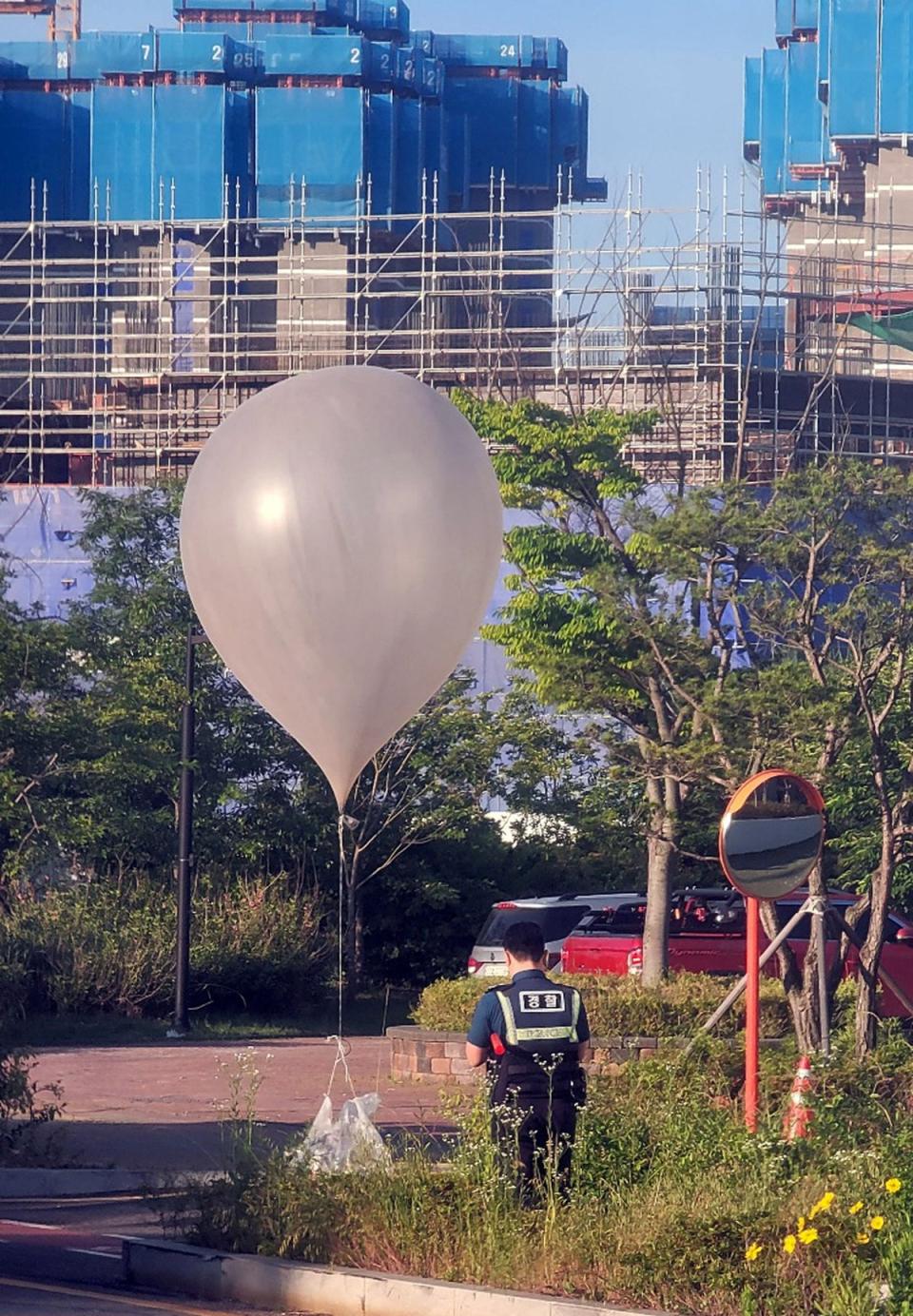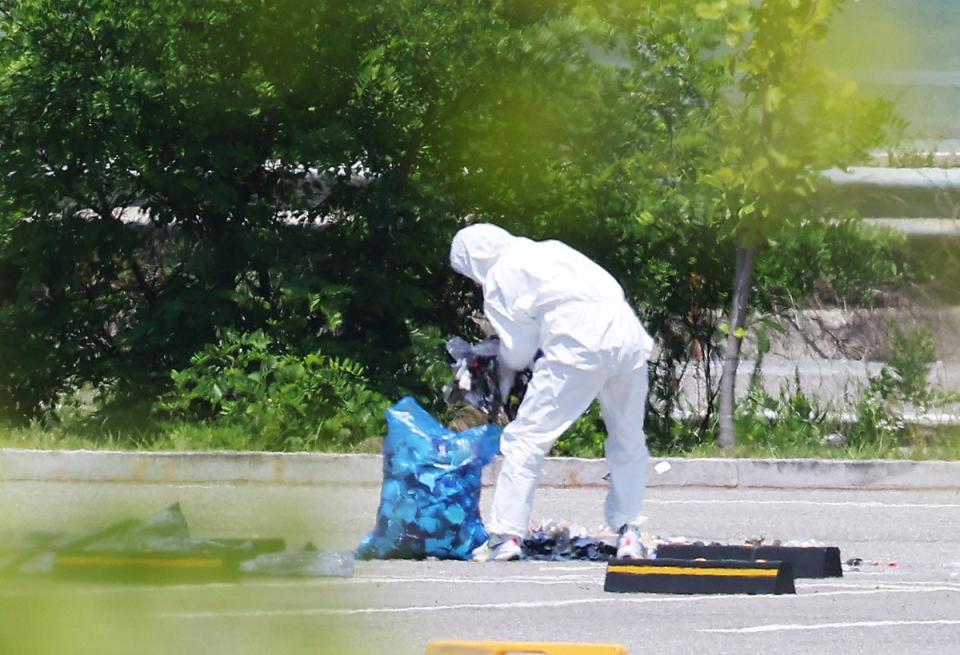Why the ‘balloon war’ between North Korea and South Korea could spiral out of control
The North Korean leadership has vowed retaliation after South Korea resumed loudspeaker broadcasts and activists floated propaganda leaflets over the border, escalating the ongoing “balloon war” and damaging their already fraught bilateral relationship.
In a statement carried by the state-run Korean Central News Agency on Sunday, Kim Yo-jong, sister of North Korean leader Kim Jong-un, denounced the South for “creating a new crisis”.
“This is a prelude to a very dangerous situation,” Ms Kim, an influential member of the regime, said. “I sternly warn Seoul to immediately cease its dangerous activities that would further provoke a crisis of confrontation.”
Not long after Ms Kim’s warning, the South Korean military reported on Monday morning that North Korea had sent over 300 balloons across the border overnight. They carried mostly scrap paper and plastic and not any toxic material, according to the Yonhap News Agency.
The neighbours have been sporadically flying balloons filled with propaganda material across their shared border since the Korean war in the early 1950s. They have also used radio broadcasts, loudspeakers and leaflets to influence each other’s citizens, promoting their ideologies and social systems and encouraging soldiers to defect.
The latest exchange began last month when North Korea floated 200 balloons filled with trash in a tit-for-tat response to activists in the South, sending balloons carrying propaganda material about their democratic society and memory devices with K-pop music videos.
The psychological warfare has since tipped over into real escalation, with Seoul last week suspending a 2018 non-hostility pact aimed at lowering military tensions.
Lee Sung-joon, spokesperson for South Korea’s Joint Chiefs of Staff, said Ms Kim’s comments marked an increase in verbal threats from North Korea. Mr Lee claimed that the South was conducting broadcasts in locations where soldiers were well protected and prepared to respond swiftly if attacked.
“We don’t think that they could provoke us that easily,” he said at a briefing on Monday.
Strategic experts said North Korea’s failure to comprehend democracy meant the “balloon war” could spiral out of control.
“Seoul does not want military tension at the inter-Korean border and Pyongyang does not want outside information threatening the legitimacy of the Kim regime,” Leif-Eric Easley, professor at Ewha University, Seoul, said. “For both sides, “escalating to deescalate” is a risky proposition. North Korea may have already miscalculated, as South Korea’s democracy cannot simply turn off NGO balloon launches the way an autocracy would expect.”

Mr Easley said the previous South Korean government had amended a law to prohibit its citizens from flying balloons into North Korea. “During the current conservative administration, that restriction was found to be unconstitutional,” he told The Independent. “So the freedom of South Korean NGOs to launch anti-Kim regime leaflets is not yet legally settled by the National Assembly and the courts.”
The experts also suggested that North Korea’s balloon campaign was aimed at creating discord in South Korea, particularly regarding the conservative government’s stringent stance towards Pyongyang.
“The balloon launches aren’t weak action at all. It’s like North Korea sending a message that next time, it can send balloons carrying powder forms of biological and chemical weapons,” Kim Tae-woo, former president of South Korea’s Institute for National Unification, told the Associated Press.

While South Korean liberal lawmakers, many civil society groups and people near the border have advocated for the government to intervene and dissuade activists from leafleting to prevent tensions with North Korea, authorities have cited a constitutional court ruling from last year invalidating relevant legislation to wash their hands off.
Amid rising tensions, the US, the chief ally of South Korea, last week flew a long-range bomber aircraft over the peninsula and conducted the first precision-guided bombing drill with Seoul in seven years as a warning against North Korea.

“North Korea tends to strike at unexpected times and in unexpected ways to politically divide South Korea, complicate attribution, and make it more difficult for Seoul to retaliate,” Mr Easley said.
“As Pyongyang faces material and ideological disadvantages in exchanging propaganda over the border, it may resort to provocations such as firing weapons, cyberhacking, or even a maritime attack.”
But the Kim regime “would be unwise to test South Korea’s political will and military capability to respond”.
“Pyongyang is used to employing asymmetric tactics to its advantage, but in today’s information space, it is outgunned by messages of freedom, economic success, and K-pop,” Mr Easley said.

Yang Moo-jin, president of the University of North Korean Studies in Seoul, criticised the use of balloons as a means of communication with North, calling them an “anachronistic remnant of the Cold War”.
He told The New York Times that the balloons had failed to significantly impact human rights conditions in North and the trash-laden balloons from North present a threat within the airspace of South Korea, where international air traffic is common.
“From Pyongyang’s perspective, this is a tit-for-tat and even restrained action to get Seoul to stop anti-Kim regime leaflets from being sent north,” Mr Easley said.
“However, it will be difficult for democratic South Korea to comply, given ongoing legal disputes over the freedom of citizens and NGOs to send information into North Korea.”
Although “the immediate danger of military escalation is not high”, he said, “recent developments show how sensitive and potentially vulnerable the Kim regime is to information operations”.
South Korean president Yoon Suk-yeol last week called North Korea “the darkest place on earth” and its trash balloons “despicable provocation”.


